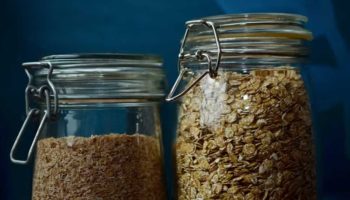Sweet drinks can do much more than just quench thirst: cola is versatile as a household product thanks to the phosphoric acid it contains. We show you how you can repurpose this drink.
Almost everyone knows the problem: the drain is clogged, and the toilet cleaner is not within reach. Or perhaps the food is burned in the pot, and you want to clean it without having to scrub too much. There is a quick cleaning alternative available in many households and is also inexpensive: cola.
Why cola cleans
In addition to carbon dioxide and sugar, phosphoric acid is a major component of the drink. It is also found in laundry detergents and rust removers, and at high concentrations, it is corrosive. In cola, it is used in diluted form as a preservative and acidifier, and it also contributes to the characteristic taste.
Cleaning toilets from limescale and urine residue
Many toilet cleaners contain harsh chemicals and unnecessarily harm the environment. Cola removes limescale deposits and urine residue in toilets just as effectively and is more environmentally friendly than most other products. Preferably use cola without artificial sweeteners. This spares sewage treatment plants because substitute sweeteners are partially filtered with difficulty or not at all in water. Here’s how to proceed:
Mix half a liter of cola with two packets of baking powder. Pour the mixture into the toilet bowl. Let it sit for half an hour or even overnight, depending on the degree of dirtiness. Flush the toilet and clean with a toilet brush.
If you don’t have cola on hand, clean your toilet with other home remedies such as denture tablets, vinegar, or baking soda.
Unclogging blocked drains
Whether it’s the kitchen sink or the shower and toilet in the bathroom: over time, pipes get clogged and need to be cleaned. Cola is also helpful here. Indeed, the phosphoric acid it contains is corrosive and can dissolve light deposits in the pipes. Pour a liter of cola into the drain and let it sit overnight. The next morning, open the faucet wide or flush the toilet several times to dislodge deposits in the pipes.
Cleaning burnt pots and pans
Burnt dishes in pots and pans are often difficult to clean even in the dishwasher. Only manual labor with tedious scrubbing helps. Or you can try cleaning your cookware with cola. This will be much easier:
Burnt pot: It should be removed quickly from the heat. Pour cola into the burnt pot until the bottom is covered with about two centimeters of the drink. Heat the liquid on the stove and let it simmer gently for about half an hour. Then rinse the cookware briefly with clear water and, if necessary, place it back in the dishwasher.
Removing rust
Whether on a garden tool, a bike, or on metal objects: rust often settles and is difficult to remove. Additionally, cleaning products like rust removers are expensive and are not available in all supermarkets. But there are several home remedies for removing rust from clothing, metal, or tiles. Cola is one of them:
Pour cola directly onto the rust or place a piece of fabric or absorbent paper soaked in cola on it. Let the soda sit for a while. Then scrub the dissolved rust with a small brush, such as an old toothbrush. As an alternative to rust removers, you can also use cola to loosen rusty screws.
Descaling the kettle
It is one of the household appliances that scales the fastest: the kettle. But cola ensures lime-free tea and coffee water. To do this, pour the soda into the cooled kettle and preferably let it sit overnight. The next morning, all lime deposits will have dissolved. Rinse the appliance well before using it.
This method is certainly effective, but lime comes off more cleanly with citric acid or vinegar. These are additional home remedies for descaling a kettle.
Removing moss from joints
It settles in the joints of paving stones or terraces, but also on house facades: moss. Over time, it can become dangerous as it allows moisture to penetrate into the wall and can damage the pavement and the facade plaster. But cola is also an effective way to remove it. The advantage: neither the joints nor the paving stones or the facade are attacked or discolored by the soft drink. Here’s how to proceed:
Paving stones: Moss settles in the joints. Pour cola on the joints overrun by moss or apply the lemonade with a brush to the facade. Repeat the procedure after a few minutes. Let the cola sit for a while. Then rinse the lemonade off with cold, clear water. Otherwise, in summer, you will attract wasps and other insects. Using a hard brush, remove the moss from the joints or the facade. Be careful not to damage the plaster.
If you don’t want to use commercial weed killers, you can also remove moss with other home remedies such as vinegar and salt or cooking water from potatoes and pasta.
Removing blood stains from clothing
Even though many detergent manufacturers promise otherwise: blood stains generally do not disappear after the first wash. But if you put a little cola on the stain before washing it and let it sit for a while, the garment should come out of the washing machine stain-free after washing.
If blood gets on clothing, sofa covers, or carpets, the golden rule is: the sooner you wash the stain, the more likely it is to disappear.



